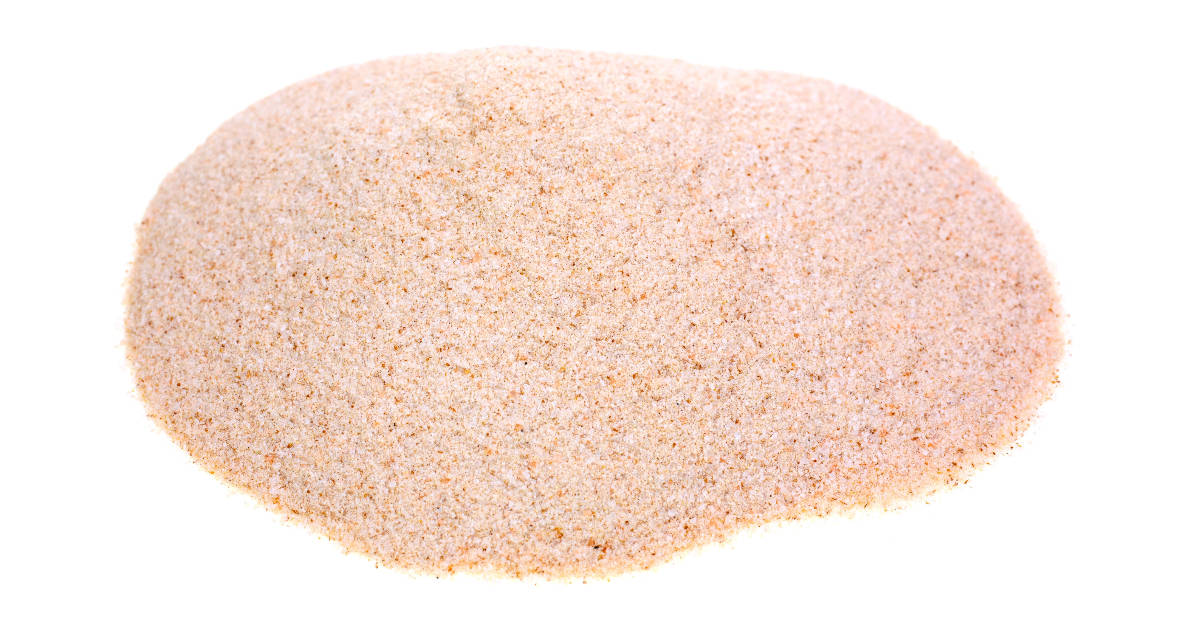Psyllium is a type of soluble fiber derived from the outer husk of the psyllium plant's seeds. It comes in two main forms - as a powder or in whole husks.

Both provide dietary fiber and can be used to help with digestive issues like constipation.
However, there are some key differences between psyllium powder and husk that affect how they are used.
Psyllium Husk vs. Psyllium Powder
Psyllium comes in two main forms - as a powder or in its whole husk form. Both provide the same soluble fiber, but there are some key differences:
Texture
- Psyllium husk - Has a coarser, grainier texture when mixed with water or liquids. The husks retain their shape.
- Psyllium powder - Is finely ground so dissolves completely in water for a smoother, less grainy texture.
Absorption
- Psyllium husk - Absorbs around 10 times its volume in water.
- Psyllium powder - Has more surface area so absorbs water faster and can absorb 20-30 times its volume in water.
Dosage
- To get an equivalent amount of soluble fiber, you need to use more psyllium husk compared to the powdered form.
- 1 tablespoon of psyllium powder provides around 7 grams of soluble fiber.
- 1 tablespoon of psyllium husk provides around 3.5 grams of soluble fiber.
Usage
- Psyllium husk - Works well when mixed into foods like breakfast cereals, yogurt or baked goods. The husks add a light crunch.
- Psyllium powder - Is commonly used for psyllium supplements as it mixes smoothly into liquids and beverages. Also works well for baking when a finer texture is desired.
Color
- Psyllium powder - Can sometimes turn baked goods purple due to a compound called anthocyanin. This does not affect the taste or nutrition.
- Psyllium husk - Does not cause purple discoloration.
Overall, both forms provide the same digestive health benefits. Psyllium husk has a coarser texture, while the powder dissolves completely and is more concentrated.
Health Benefits of Psyllium
Relieves Constipation
Multiple studies show psyllium is effective for relieving constipation. A review in Nutrients found psyllium worked as well as the constipation drug lactitol for treating chronic idiopathic constipation. It helps make stools easier to pass by increasing bulk, weight and moisture content.
Lowers Cholesterol
Soluble fibers like psyllium can lower "bad" LDL cholesterol levels. A review in the American Journal of Clinical Nutrition found that 10 grams of psyllium per day significantly reduced LDL cholesterol. This effect was enhanced when psyllium was taken along with cholesterol-lowering statin drugs.
Controls Blood Sugar
For people with type 2 diabetes, psyllium supplements taken before meals help reduce blood sugar spikes after eating. A review in the American Journal of Clinical Nutrition reported psyllium significantly lowered fasting blood glucose and HbA1c in diabetics.
Relieves Diarrhea in IBS
In people with diarrhea-predominant IBS, psyllium can help firm up stools and reduce the frequency of diarrhea episodes. A review in the journal Alimentary Pharmacology & Therapeutics found psyllium more effective than other fibers for managing IBS symptoms.
How to Take Psyllium Supplements
The dosage for psyllium depends on the form used and the health goal:
- For constipation - Start with 1 teaspoon of psyllium powder or 1 tablespoon of the husks once per day. Gradually increase to find the most effective dose. Do not exceed the recommended dosage on the supplement label.
- For cholesterol - 10 grams per day of either psyllium powder or husks has been shown effective to lower LDL cholesterol.
- For diabetes - Take 5-10 grams of psyllium powder or husks before meals to help control blood sugar response.
Always take psyllium supplements with a full glass (8 oz) of water or juice. Drink plenty of fluids throughout the day as well. Insufficient liquid intake can worsen constipation.
Allow psyllium supplements to fully dissolve and thicken for a few minutes before drinking for best results.
Choosing the Best Psyllium Supplements
Look for organic psyllium powder or husks from reputable brands. Psyllium is generally well tolerated, but some people may experience gas, bloating or allergic reactions. Stop use if any hypersensitivity reactions occur.
Avoid psyllium supplements that contain added sugars, flavors or other unnecessary ingredients. Always speak with your healthcare provider before taking psyllium, especially if you take any medications it could potentially interact with.
FAQs
Is psyllium safe to take every day?
Yes, daily psyllium supplements are considered very safe for most people. They can help maintain regularity and provide added fiber intake. Some people take psyllium every day for digestive issues like IBS. Always follow label dosage directions.
Does psyllium actually cleanse your colon?
Psyllium is sometimes referred to as a "colon cleanse" since it bulks up stools and allows the colon to eliminate waste more efficiently. However, psyllium does not actually remove toxins or "clean" the colon tissue in any way. It simply helps with regular bowel movements.
Can you take psyllium on an empty stomach?
It is not recommended to take psyllium supplements on an empty stomach. Psyllium works by slowing digestion, so it is better to take it with food. Taking psyllium on an empty stomach may potentially cause nausea or other side effects.
Conclusion
Psyllium is an excellent soluble fiber supplement to help with occasional constipation while also providing added fiber intake. It comes in both powder and husk form. The powder offers a smoother texture and mixes easily into liquids, while the husks provide a light crunch when added to foods.
Both types of psyllium can provide health benefits for digestion, cholesterol levels, blood sugar control, and diarrhea relief. Follow dosage directions carefully and be sure to drink plenty of water when taking psyllium.

